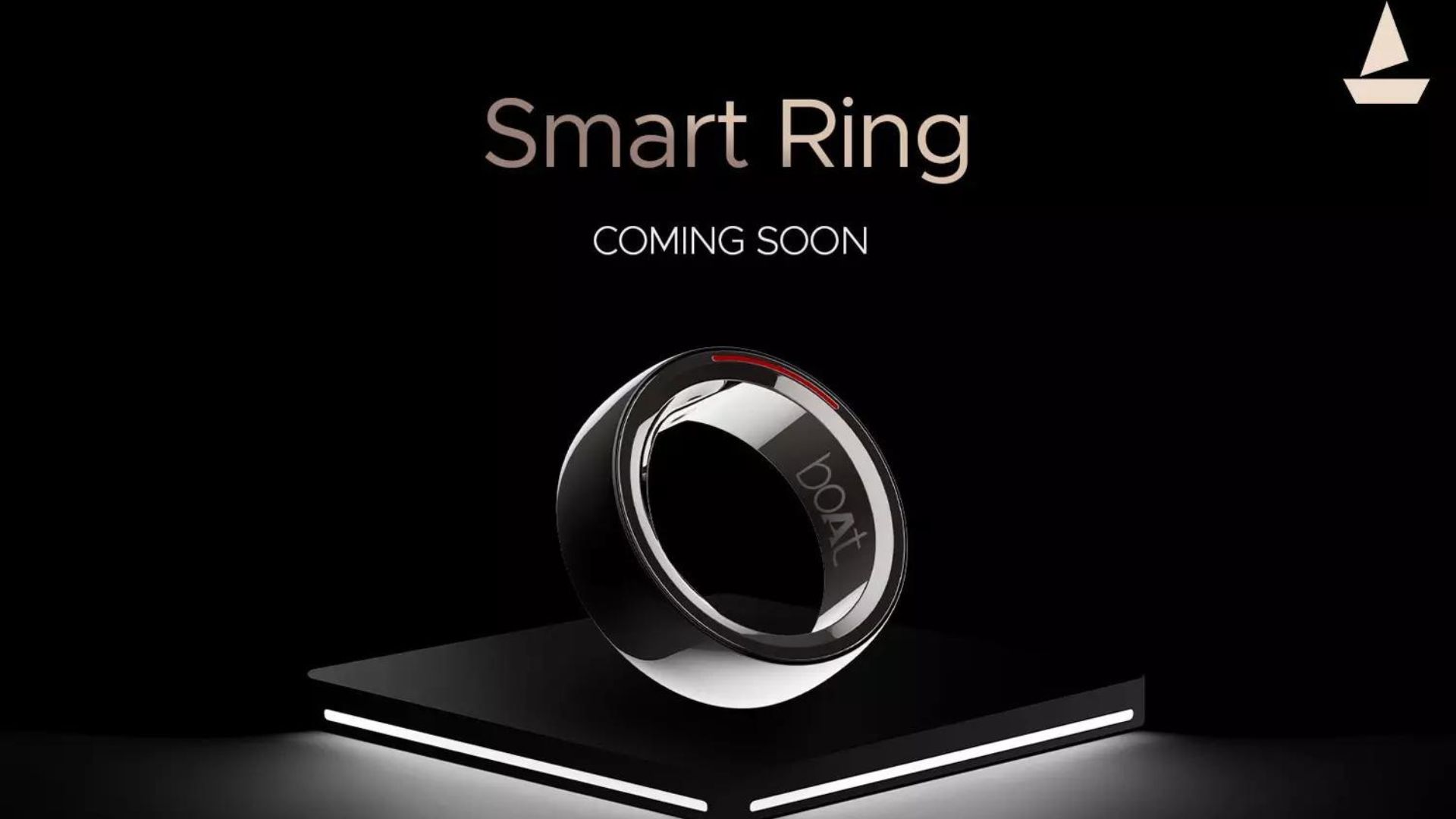Smart Ring Fidelity Test: A New Era Of Relationship Transparency?

Table of Contents
How Smart Ring Fidelity Tests Work
The concept of a smart ring fidelity test hinges on leveraging technology to monitor physiological and locational data, purportedly to detect signs of infidelity. While no commercially available smart rings are explicitly marketed for this purpose yet, the theoretical functionality relies on several key components:
-
Use of biometric sensors: These rings would likely incorporate advanced biometric sensors to measure heart rate, skin conductance (a measure of sweat, often associated with stress), and potentially even body temperature. The idea is that heightened stress levels during interactions with other individuals could be flagged as suspicious. This relies heavily on the assumption that infidelity always causes a measurable stress response, which is a significant oversimplification.
-
Potential integration with GPS tracking: Location data could provide further "evidence," although this raises even more serious privacy concerns. Tracking a partner's movements constantly could be interpreted as a gross invasion of privacy, regardless of the context.
-
Data analysis algorithms: Sophisticated algorithms would analyze the collected biometric and location data, searching for patterns that might indicate infidelity. These algorithms would need to account for numerous variables and would likely produce a high rate of false positives. The interpretation of this data is subjective and prone to error.
The Ethical Implications of Smart Ring Fidelity Tests
The ethical implications of smart ring fidelity tests are profound and raise serious concerns about privacy, autonomy, and the very nature of trust in relationships.
-
Data security and potential for hacking: Any device collecting sensitive personal data, such as biometric information and location history, is a potential target for hackers. A breach could expose extremely private details, leading to identity theft, blackmail, or other serious consequences.
-
Violation of personal autonomy and the right to privacy: Constant monitoring fundamentally violates the right to privacy. Even with consent, the feeling of being constantly scrutinized can be incredibly damaging to a relationship. This technology removes the space for individual agency and freedom.
-
The potential for false positives and damaging consequences: The inherent inaccuracies of the technology are a serious concern. A false positive could lead to unfounded accusations, destroying trust and causing irreparable harm to the relationship. The potential for emotional distress caused by a false flag is considerable.
-
The impact on trust and communication: Even if the technology were perfectly accurate (which it isn't), relying on a device to monitor fidelity rather than fostering open communication creates a deeply unhealthy dynamic. Trust should be built on honesty and mutual respect, not technological surveillance.
Consent and Transparency in Relationships
The use of a smart ring fidelity test, even hypothetically, raises significant questions about consent and transparency.
-
Ethical dilemma of using such technology without explicit consent: Employing such a device without your partner's full knowledge and informed consent is a clear breach of trust and ethical boundaries. It's coercive and manipulative.
-
Potential for power imbalances and coercion: In relationships where there's a power imbalance, the use of a smart ring fidelity test could be used as a tool of control and manipulation by the dominant partner.
The Potential Benefits (If Any) and Limitations of Smart Ring Fidelity Tests
While the idea of a smart ring fidelity test might appeal to some individuals experiencing anxiety about infidelity, the limitations far outweigh any potential, albeit highly questionable, benefits.
-
Could potentially alleviate certain anxieties (with major caveats): In extremely limited circumstances, it might offer a (false) sense of security for some couples facing trust issues, potentially opening a dialogue about underlying concerns. However, this benefit is vastly outweighed by the serious risks.
-
Significant limitations due to inaccuracies and misinterpretation: The technology is inherently prone to error. Physiological responses are complex and influenced by many factors unrelated to infidelity.
-
The technology is still relatively new and unproven: There's a lack of rigorous testing and validation for any such device. Claims of accuracy would need to be substantiated through robust scientific evidence, which currently does not exist.
-
Exacerbating existing relationship problems: Rather than solving issues of trust, using a smart ring is far more likely to worsen existing problems by creating an atmosphere of suspicion and mistrust.
Alternatives to Smart Ring Fidelity Tests for Building Trust
Building a healthy and trusting relationship requires communication, respect, and a willingness to address concerns openly. Here are far healthier alternatives to technological surveillance:
-
Open communication and honest conversations: Addressing concerns directly and fostering open dialogue is crucial. This includes listening to your partner's concerns and expressing your own feelings honestly.
-
Relationship counseling or therapy: A therapist can provide guidance and support to help couples navigate trust issues and improve communication. Seeking professional help demonstrates a commitment to improving the relationship.
-
Building trust through consistent actions and mutual respect: Trust is earned over time through consistent actions, reliability, and mutual respect. It's built on consistent behavior, not technological monitoring.
-
Focus on strengthening the relationship: Instead of focusing on potential infidelity, work on strengthening the bond and addressing the root causes of relationship anxieties.
Conclusion
Smart ring fidelity tests represent a controversial intersection of technology and relationships. While proponents might suggest improved transparency, the ethical concerns surrounding privacy, consent, and potential inaccuracies outweigh any perceived benefits. The potential for misuse and the damage to trust far outweigh any perceived advantages. The technology itself is not only unreliable but promotes a deeply unhealthy approach to building and maintaining a strong, trusting relationship.
Instead of relying on potentially unreliable and ethically questionable smart ring fidelity tests, focus on building healthy communication and trust within your relationship. Consider seeking professional help if you have concerns about fidelity or trust. Remember, a strong relationship thrives on open communication, not technological surveillance.

Featured Posts
-
 A Boris Johnson Comeback Potential Savior Or Political Suicide
May 03, 2025
A Boris Johnson Comeback Potential Savior Or Political Suicide
May 03, 2025 -
 157 Gola Lakazet Pishe Istoriya Vv Frenskoto Prvenstvo
May 03, 2025
157 Gola Lakazet Pishe Istoriya Vv Frenskoto Prvenstvo
May 03, 2025 -
 Dr Shradha Malik Advocating For Mental Health Awareness And Breaking The Silence
May 03, 2025
Dr Shradha Malik Advocating For Mental Health Awareness And Breaking The Silence
May 03, 2025 -
 Zayavlenie Makrona Davlenie Na Rossiyu Iz Za Ukrainy Usilitsya
May 03, 2025
Zayavlenie Makrona Davlenie Na Rossiyu Iz Za Ukrainy Usilitsya
May 03, 2025 -
 Bae Orta Afrika Cumhuriyeti Ticaret Anlasmasinin Ekonomik Etkileri
May 03, 2025
Bae Orta Afrika Cumhuriyeti Ticaret Anlasmasinin Ekonomik Etkileri
May 03, 2025
